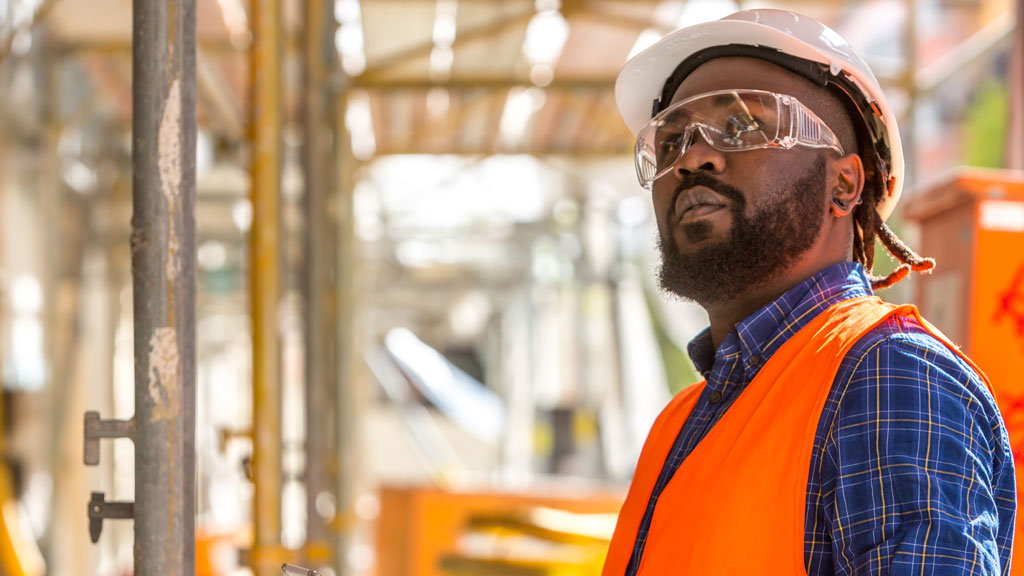The Carpenters’ District Council of Ontario (CDCO) has done a lot to mark Black History Month this year, but it took the events of 2020 to spur change in the industry.
“Promoting Black History of Month and the contribution of Black construction trades union leaders, I proposed that before but it didn’t get anywhere,” explained Chris Campbell, the CDCO’s equity diversity representative.
“In 2020 George Floyd was killed, we had the Black Lives Matter peaceful protests and then you had the nooses on (Toronto) sites and then people started paying attention and things started changing. Without the traumas and dramas of 2020 there never would have been a Charter of Inclusive Workplaces like we have at the Carpenters’ District Council, a Declaration of Inclusive Workplace by the City of Toronto, the City of Toronto embracing the Toronto community benefits more today than before – that wouldn’t have happened.
“I’m proud that we are changing the narrative,” added Campbell. “It’s not where it should be just yet but it’s getting there, slowly but surely.”
Video highlights history and contributions of Black members
A video celebrating Black History Month was produced by Local 27 in Toronto outlining the history of the union and the contributions the Black community made to building the city.
“There is a great history of our membership coming from the Caribbean, primarily Jamaica, in the ‘60s and ‘70s in Toronto,” explained Mike Yorke, president, CDCO. “They started their lives here, they got involved in the construction industry wanting to make a better life for themselves and their families and they faced racism on the jobsite. They faced challenges from the industry at large and unfortunately from the union.”
They faced obstacles getting work in the industry even though they were union members, said Yorke.
“What these members did is they joined the annual Labour Day parade not as part of the Local 27 contingent but at the back of the parade with signage calling on both management and their own union to deliver on the goods of being a union member,’” said Yorke. “That was a real pivotal moment for the Black community to be part of this union. They were standing up for their own rights not just to the industry but to their own union that they were part of. I think that in some ways was the basis of real attitudinal change and certainly it was the basis of Black leaders coming organically from the membership and those individuals became leaders in our organization years later.”
Celebrating Black History Month
Working with the CDCO, the union also spotlighted Black members, women and youth who have made positive contributions to the industry on social media throughout Black History Month.
In terms of broader initiatives, acts of racism plagued Greater Toronto Area (GTA) jobsites last spring and summer and in response the Carpenters’ Union developed a Charter of Inclusive Workplaces and Communities.
More recently, the Carpenters’ Union signed the inclusivity declaration with 30 other signatories including developers, contractors, other unions and industry associations.
“It really sets the bar and the benchmark very high on what is expected by and from the industry,” said Yorke. “We are proud to be part of that. We wanted to make sure that came out before the end of Black History Month. The messaging is we as an industry are standing up and recognizing that we need to do better.”
While the declaration is a step in the right direction, it is not going to solve the problem of racism in the industry, Campbell said.
“To solve a problem you have to at least acknowledge that there is a problem,” he explained. “This is merely an acknowledgement. It’s a good start but it’s not the solution. The solution comes with people learning and changing their attitude, being more respectful and that takes time. You have to become more educated, more informed about the folks you are working with.”
The Carpenters’ have also established an equity and diversity committee and are working with a third party to provide inclusivity training to union leaders, staff and eventually all members. The training was scheduled to take place early this year but has been postponed due to the COVID-19 pandemic.
“We want to help to create an environment where this is unlikely to happen again,” said Campbell. “We want to provide training to help our members to be more sensitive to the needs and cultures of each other and to be more respectful and to give them more courage to stand up for each other when discrimination and racist acts are occurring.”
Follow the author on Twitter @DCN_Angela.











Recent Comments
comments for this post are closed